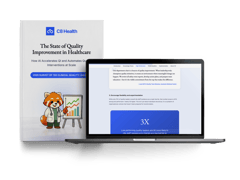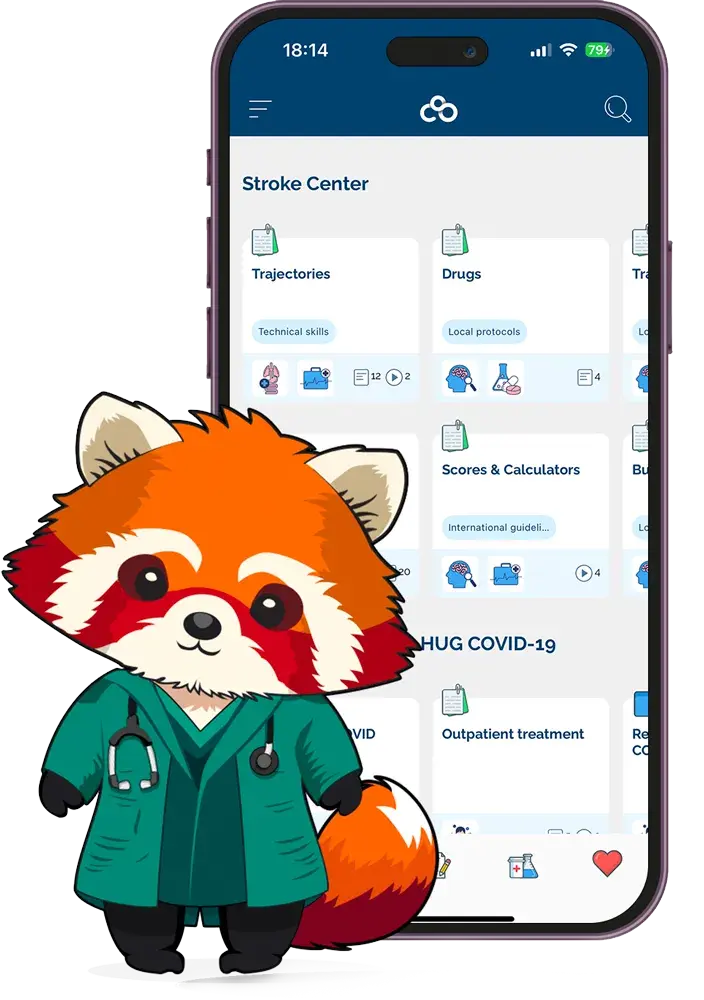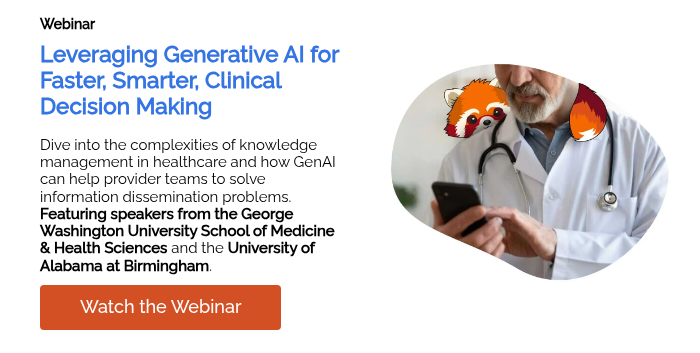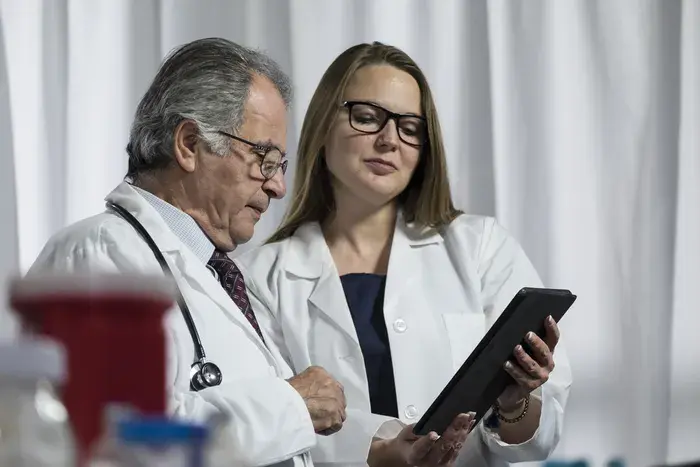
6 Reasons Why Technology Is Important in Modern Healthcare
Is the rising tide of healthcare data drowning your staff in administrative tasks, leaving less time for what matters most: patient care?
You could automate repetitive tasks, freeing up your staff's valuable time to focus on providing personalized care. Medical technology is advancing rapidly, and there are many ways it can benefit your healthcare organization.
» Experience all the benefits of technology in healthcare with a knowledge management system
1. Easy Retrieval of Patient Information
Technology simplifies data collection and access. From experience, I can emphasize how important it is when dealing with patient data. For example, EMRs provide a quick and efficient way to retrieve a patient's medical history, including their comorbidities, recent tests, and lab results.
With digital records, you can look through information efficiently. Imagine how much time that can save when you're trying to understand a patient's medical history and make informed decisions about their care.
Additionally, the use of cloud computing technology has been a significant trend, positively impacting implementation in healthcare facilities. These services operate on remote servers, which means hospitals don't need to maintain local IT infrastructure.
» Looking to make smart budget decisions? Check out how you can reduce healthcare costs
2. Better Access to Medical Guidance
Healthcare is filled with extensive documentation, but it lacks a central system to manage it all. The real challenge is making unique, approved guidance easily accessible. Electronic health records and knowledge management platforms are tackling this with a central repository.
» Find out how efficient knowledge management boosts patient care
These types of technology positively impact healthcare professionals' operational efficiency by giving them a single vetted source of information. It removes the risk of outdated or conflicting information, providing a reliable resource for patient care.
The same efficiency you see in retrieving patient data can also apply to how you access clinical practice guidelines. They could include procedures for treating a patient or operating medical equipment.
» Explore innovative approaches for driving operational efficiency
A platform that's tailor-made for healthcare can put that knowledge in your hands when and where you need it, no matter what role you play in the healthcare ecosystem.
Learn how anesthesiologist Max Feinstein, M.D., uses a knowledge management system for easy access to medical guidance
3. Enhanced Clinical Practice
Radiology is using AI to enhance image recognition, particularly for managing strokes. The latest trend in this space is generative AI, which is capable of transforming unstructured data into actionable insights.
» Learn more about the role of AI in modern healthcare
The process makes it easier for healthcare professionals to interact with and understand the information. It also leads to more informed decision-making that can help you improve patient safety.
We're excited about this development and are in the process of incorporating generative AI into the C8 Health platform. The aim is to enable users to ask questions in natural language and receive quick, accurate answers based on local best practices, making medical information more accessible and easier to understand.
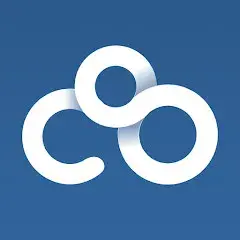
Data-driven insights
Accessible best practices
Seamless integration into workflows
4. Easy Remote Consultations
Telemedicine relies on health professionals with varied experiences treating diverse patients. It's like running a mobile ER-dealing with unpredictable cases in different locations. Having access to relevant guidance in real-time is vital, particularly when handling suspected conditions like heart attacks.
Telehealth professionals need to direct patients to the correct location with the necessary facilities, stick to guidelines, and follow strict protocols. This ensures accurate triage and prevents medical errors when direct patient interaction isn't possible.
» Find out more about the key role of updated clinical guidance
5. AI Prediction and Profiling
As an internist and anesthesiologist who has worked in various hospital departments, I find that AI doesn't add much value in diagnosing patients. Diagnosis is based on experience, and accuracy is generally consistent among professionals.
The real challenge is in the next steps: treatment and follow-up, which involve monitoring the patient and continuous physical examination. AI excels at predicting diseases and profiling patients.
By compiling data from many patients, AI, through machine learning, can forecast a patient's likely journey in the hospital based on factors like comorbidities, age, and medical history.
» Explore how automated workflows are transforming clinical best practices
This predictive capability, seen in areas like sepsis care in ICU settings, is promising, though not fully operational yet. AI can identify patterns in patient data, aiding in predicting outcomes and detecting conditions like sepsis earlier than standard care.
That analysis can lead to faster decision making and better patient outcomes. Our latest webinar covers the topic in more depth
6. Coordinated Care
Healthcare technology serves two primary purposes: patient care and provider support. The success of these technologies hinges on the resources available in each hospital and the personnel's training.
For patient care, state-of-the-art technology is beneficial, but it's equally important to have well-trained staff.
At C8 Health, we're on a mission to democratize access to vetted best practices. We do this by breaking down silos in hospitals, making knowledge accessible to all healthcare professionals, regardless of department or level of training. We also make knowledge-sharing between hospitals easier.
For instance, one hospital was able to share its knowledge on pediatrics, gynecology, and COVID-19 management with physicians in Madagascar, a region with limited resources.
We also have initiatives where larger hospitals share their knowledge with smaller ones, standardizing care in certain regions. This strategy ensures that patients receive consistent, high-quality care that aligns with established guidelines.
» Want to work like a well-oiled machine? Check out how to boost adherence to healthcare protocols.
Tailoring Technology to Healthcare's Unique Needs
Healthcare's slow tech adoption often comes down to clinicians sticking to what they know-manual and paper-based practices. They've got enough on their plates already, so change can seem impossible. But here's the thing-if we get clinicians involved in developing healthcare tech, we can bridge this gap.
It's all about creating tech that fits into their workflow, like a search function that gives them one specific, vetted result, not a million. This way, we're reducing their workload, not adding to it. And that's how we make sure tech meets the unique needs of healthcare.
» Use a knowledge management platform and get all the advantages of technology in healthcare
